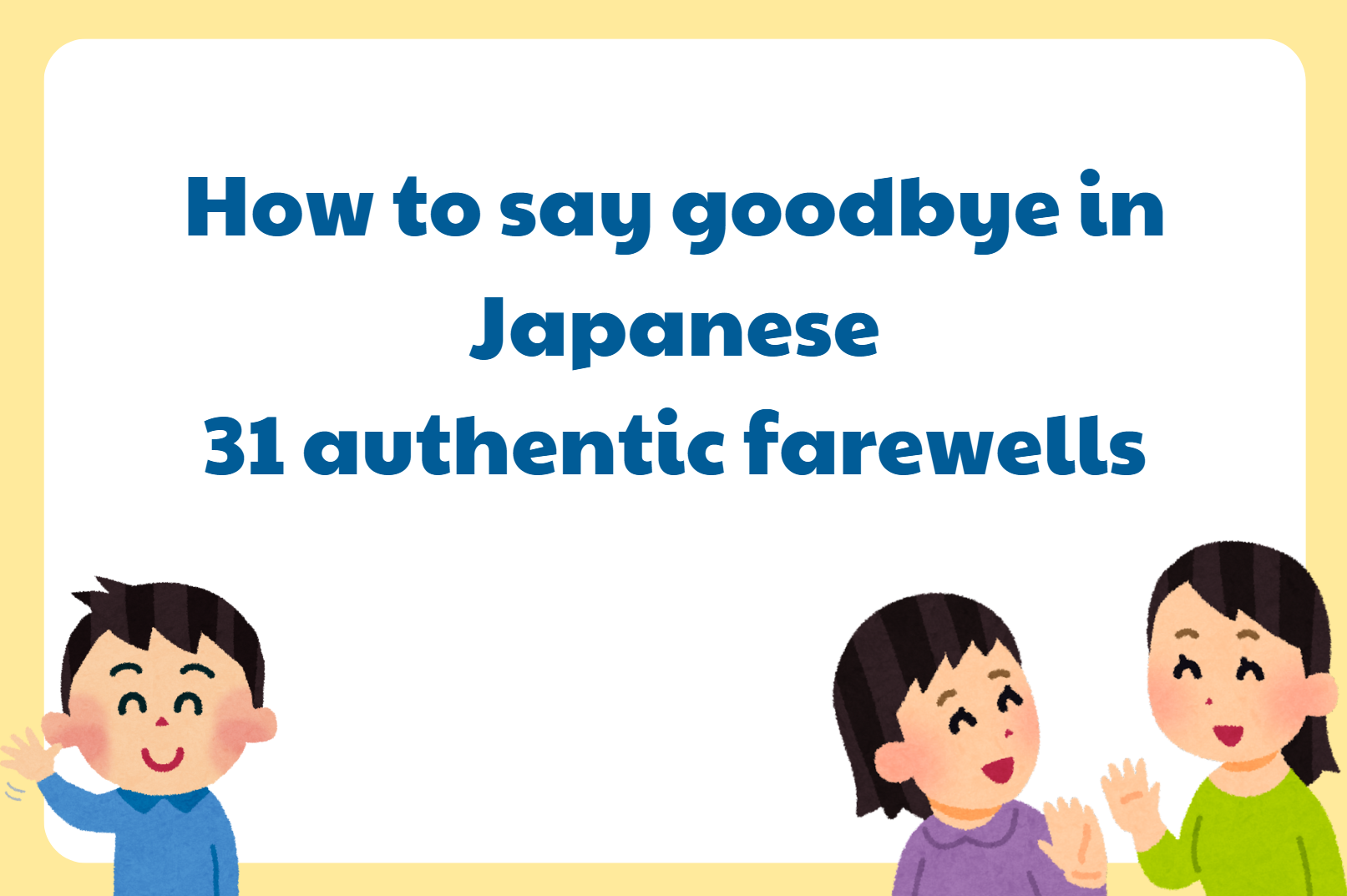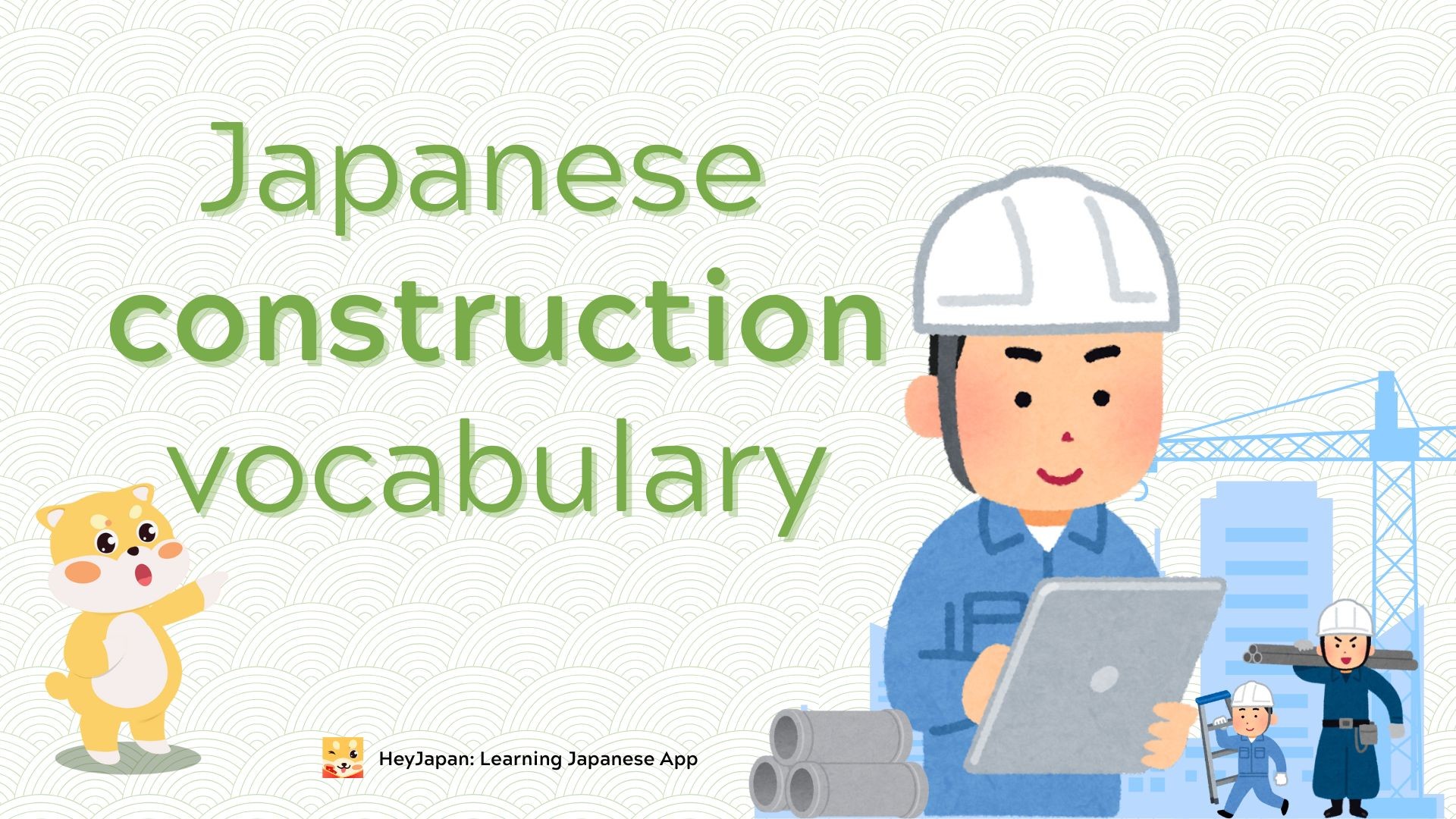- Common farewells
- 1. さようなら (Sayonara) – Goodbye
- 2. またね (Mata ne) – See you later
- 3. じゃあね (Jaa ne) – See you / Bye
- 4. バイバイ (Bai bai) – Bye bye
- 5. またあとで (Mata atode) – See you later
- 6. じゃあまたね (Jaa mata ne) – See you again later
- Workplace farewells
- 7. お疲れ様でした (Otsukaresama deshita) – Thank you for your hard work
- 8. 失礼します (Shitsurei shimasu) – Excuse me / Goodbye politely
- 9. また明日 (Mata ashita) – See you tomorrow
- 10. お先に失礼します (Osaki ni shitsurei shimasu) – Excuse me, I’m leaving first
- 11. ご苦労様でした (Gokurousama deshita) – Thank you for your efforts
- Farewells when leaving home
- 12. 行ってきます (Ittekimasu) – I’m leaving (and will be back)
- 13. 行ってらっしゃい (Itterasshai) – Take care / See you later
- 14. お帰りなさい (Okaerinasai) – Welcome back
- 15. 気をつけて (Ki o tsukete) – Take care
- Formal and polite farewells
- 16. ごきげんよう (Gokigenyou) – Farewell / Have a good day
- 16. お大事に (Odaiji ni) – Take care / Get well soon
- 17. ありがとうございました (Arigatou gozaimashita) – Thank you very much
- 18. では失礼いたします (Dewa shitsurei itashimasu) – Excuse me, I’ll take my leave
- Context-specific farewells
- 19. また会いましょう (Mata aimashou) – Let’s meet again
- 20. ではまた (Dewa mata) – See you then
- 21. 良い一日を (Yoi ichinichi o) – Have a good day
- 22. 良い夜を (Yoi yoru o) – Have a good night
- 23. また連絡します (Mata renraku shimasu) – I’ll contact you again
- Modern and youthful farewells
- 24. またねーん (Mata ne-n) – See you later (playful)
- 25. じゃあバイ (Jaa bai) – Bye bye
- 26. ではね (Dewa ne) – See you then
How to say goodbye in Japanese varies based on context, relationship, and formality. Whether you're parting with colleagues, friends, or lov ed ones, mastering these expressions helps you communicate naturally and respectfully. Discover 31 authentic ways to say goodbye in Japanese, from polite phrases to playful goodbyes, and deepen your cultural understanding with this guide!
Common farewells
|
Phrase |
Pronunciation |
Meaning |
|
さようなら |
Sayonara |
Goodbye |
|
またね |
Mata ne |
See you later |
|
じゃあね |
Jaa ne |
See you / Bye |
|
バイバイ |
Bai bai |
Bye bye |
|
またあとで |
Mata atode |
See you later |
|
じゃあまたね |
Jaa mata ne |
See you again later |
1. さようなら (Sayonara) – Goodbye
Usage: Used for long-term or permanent farewells, often in formal or emotional situations where you won’t see the person for a while.
Example:
学校を卒業する日、みんなに「さようなら」を言った。
Gakkou o sotsugyou suru hi, minna ni "sayonara" o itta.
(On the day of graduation, I said "sayonara" to everyone.)
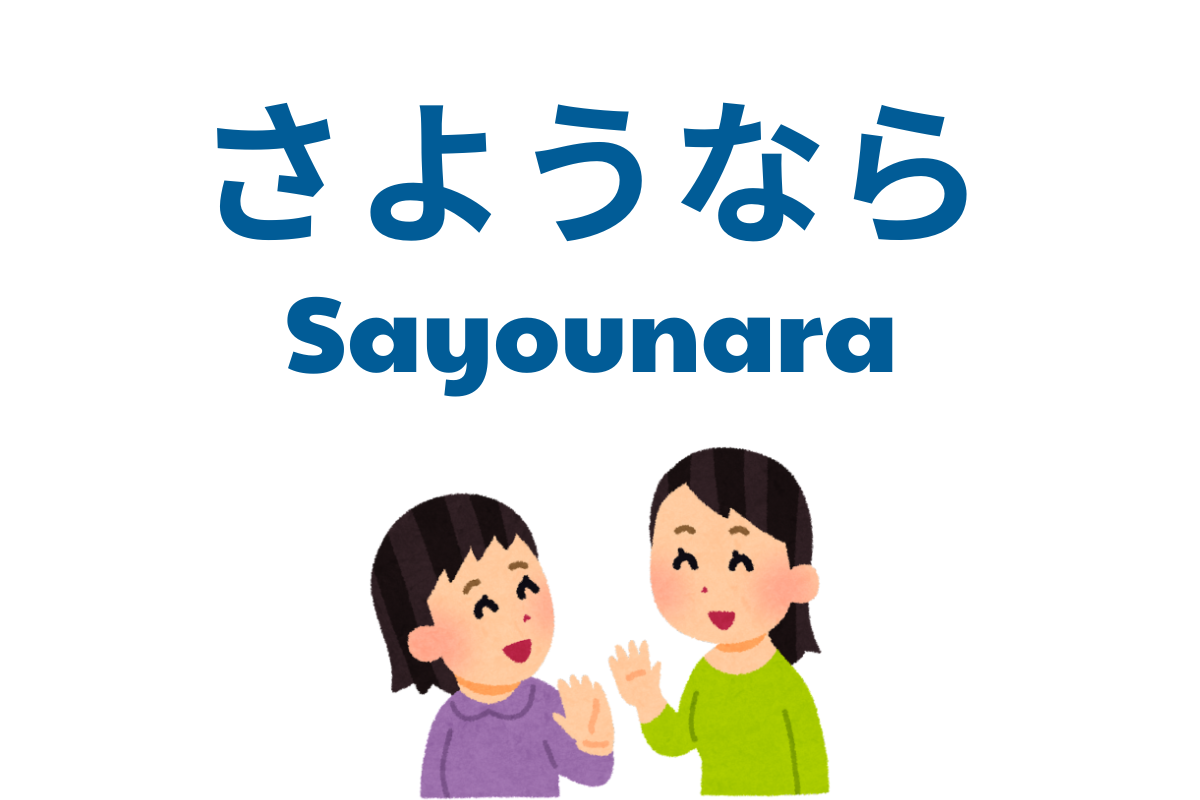
2. またね (Mata ne) – See you later
Usage: Casual farewell between friends or family members; indicates that you will see them again soon.
Example:
明日また学校で会おうね。じゃあ、またね!
Ashita mata gakkou de aoune. Jaa, mata ne!
(Let’s meet again at school tomorrow. See you later!)

3. じゃあね (Jaa ne) – See you / Bye
Usage: Friendly and informal, often used among peers or close friends.
Example:
パーティーが楽しかった!じゃあね!
Paatii ga tanoshikatta! Jaa ne!
(The party was so fun! See you!)
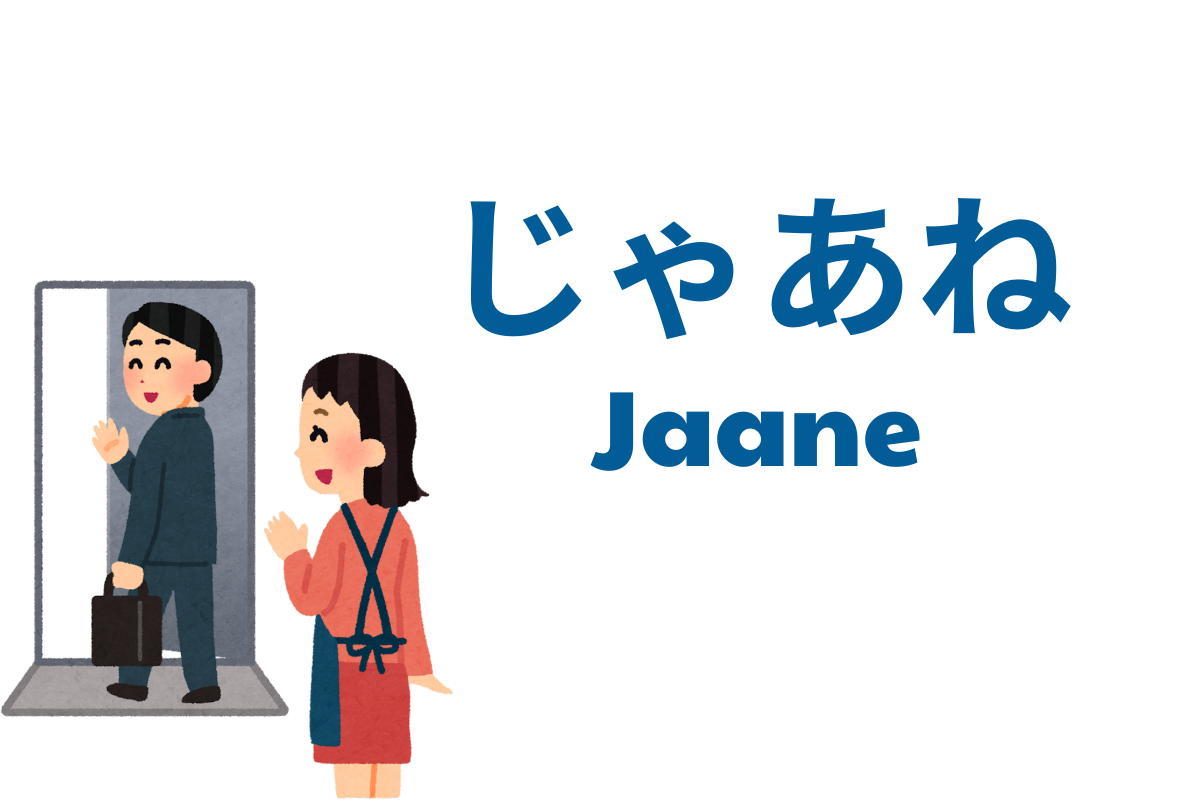
4. バイバイ (Bai bai) – Bye bye
Usage: A playful and casual phrase borrowed from English, commonly used by children or young people.
Example:
子供たちが先生に「バイバイ!」と言って帰った。
Kodomo-tachi ga sensei ni "bai bai!" to itte kaetta.
(The kids said "bye bye" to their teacher before heading home.)
5. またあとで (Mata atode) – See you later
Usage: Implies you will see the person later the same day or very soon; casual and friendly.
Example:
ちょっと用事があるから、またあとでね。
Chotto youji ga aru kara, mata atode ne.
(I have something to do now, so I’ll see you later.)
6. じゃあまたね (Jaa mata ne) – See you again later
Usage: A slight variation of "jaa ne," but emphasizes meeting again later; casual and warm.
Example:
今日はありがとう!じゃあまたね。
Kyou wa arigatou! Jaa mata ne.
(Thank you for today! See you again later.)
You may want to read: 10 Common phrases in Japanese for have a good day
Workplace farewells
|
Phrase |
Pronunciation |
Meaning |
|
お疲れ様でした |
Otsukaresama deshita |
Thank you for your hard work |
|
失礼します |
Shitsurei shimasu |
Excuse me / Goodbye politely |
|
また明日 |
Mata ashita |
See you tomorrow |
|
お先に失礼します |
Osaki ni shitsurei shimasu |
Excuse me, I’m leaving first |
|
ご苦労様でした |
Gokurousama deshita |
Thank you for your efforts |
7. お疲れ様でした (Otsukaresama deshita) – Thank you for your hard work
Usage: Commonly used to express gratitude and respect for someone’s efforts after work or an activity.
Example:
会議が長かったですが、お疲れ様でした!
Kaigi ga nagakatta desu ga, otsukaresama deshita!
(The meeting was long, but thank you for your hard work!)
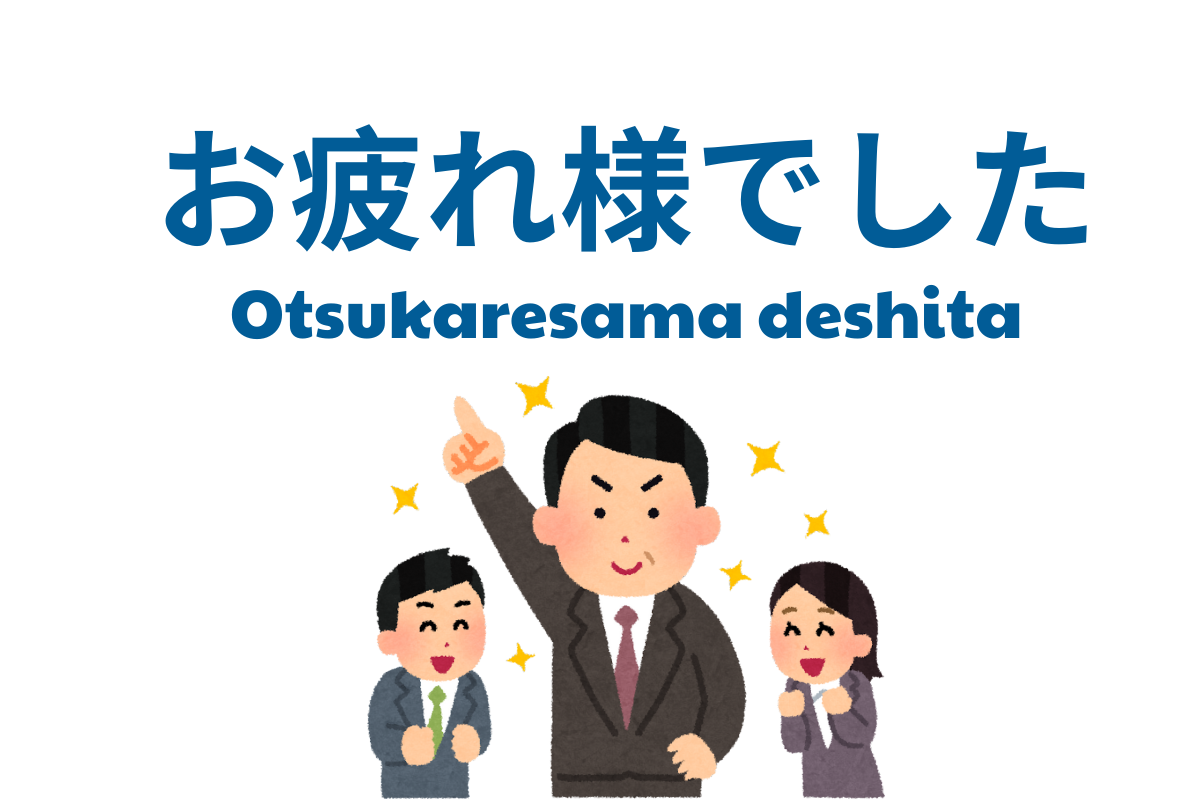
8. 失礼します (Shitsurei shimasu) – Excuse me / Goodbye politely
Usage: A polite phrase used when leaving a meeting, someone’s office, or any formal setting.
Example:
会議が終わったので、失礼します。
Kaigi ga owatta node, shitsurei shimasu.
(The meeting is over, so I’ll excuse myself.)
9. また明日 (Mata ashita) – See you tomorrow
Usage: Used to say goodbye to colleagues or friends when you’re certain you’ll meet them again the next day.
Example:
明日も一緒に頑張りましょう!また明日!
Ashita mo issho ni ganbarimashou! Mata ashita!
(Let’s work hard together tomorrow as well! See you tomorrow!)

10. お先に失礼します (Osaki ni shitsurei shimasu) – Excuse me, I’m leaving first
Usage: Used when you are leaving work or a meeting before others, showing politeness and consideration.
Example:
今日は用事があるので、お先に失礼します。
Kyou wa youji ga aru node, osaki ni shitsurei shimasu.
(I have something to attend to today, so I’ll be leaving first.)
11. ご苦労様でした (Gokurousama deshita) – Thank you for your efforts
Usage: Often used by superiors to acknowledge the work of subordinates. It is less common for colleagues of equal standing or juniors to use it.
Example:
プロジェクトが無事に終わりましたね。ご苦労様でした!
Purojekuto ga buji ni owarimashita ne. Gokurousama deshita!
(The project has been completed successfully. Thank you for your efforts!)
Farewells when leaving home
|
Phrase |
Pronunciation |
Meaning |
|
行ってきます |
Ittekimasu |
I’m leaving (and will be back) |
|
行ってらっしゃい |
Itterasshai |
Take care / See you later |
|
お帰りなさい |
Okaerinasai |
Welcome back |
|
気をつけて |
Ki o tsukete |
Take care |
12. 行ってきます (Ittekimasu) – I’m leaving (and will be back)
Usage: Used when you are leaving home to let your family know you’ll be back later. It implies a temporary departure.
Example:
朝、家を出るときに「行ってきます!」と言います。
Asa, ie o deru toki ni "Ittekimasu!" to iimasu.
(In the morning, I say "Ittekimasu!" when leaving the house.)
13. 行ってらっしゃい (Itterasshai) – Take care / See you later
Usage: A response from someone staying at home to the person leaving. It conveys well wishes for a safe trip.
Example:
母は私に「行ってらっしゃい」と笑顔で言った。
Haha wa watashi ni "Itterasshai" to egao de itta.
(My mother said "Itterasshai" with a smile as I left.)
14. お帰りなさい (Okaerinasai) – Welcome back
Usage: Used to greet someone returning home. It’s a warm and polite way to welcome them back.
Example:
仕事から帰ると、家族が「お帰りなさい」と言ってくれた。
Shigoto kara kaeru to, kazoku ga "Okaerinasai" to itte kureta.
(When I returned from work, my family greeted me with "Okaerinasai.")
15. 気をつけて (Ki o tsukete) – Take care
Usage: Used to wish someone safety as they leave. Often said by family members or close friends.
Example:
雨が降っているから、気をつけてね!
Ame ga futteiru kara, ki o tsukete ne!
(It’s raining, so take care!)
Formal and polite farewells
|
Phrase |
Pronunciation |
Meaning |
|
ごきげんよう |
Gokigenyou |
Farewell / Have a good day |
|
お大事に |
Odaiji ni |
Take care / Get well soon |
|
ありがとうございました |
Arigatou gozaimashita |
Thank you very much |
|
では失礼いたします |
Dewa shitsurei itashimasu |
Excuse me, I’ll take my leave |
16. ごきげんよう (Gokigenyou) – Farewell / Have a good day
Usage: A formal and polite way to say farewell, often used in highly respectful or literary settings. It is not commonly used in casual conversation.
Example:
パーティーを終えて、みんなに「ごきげんよう」と言いました。
Paatii o owate, minna ni "Gokigenyou" to iimashita.
(At the end of the party, I said "Gokigenyou" to everyone.)
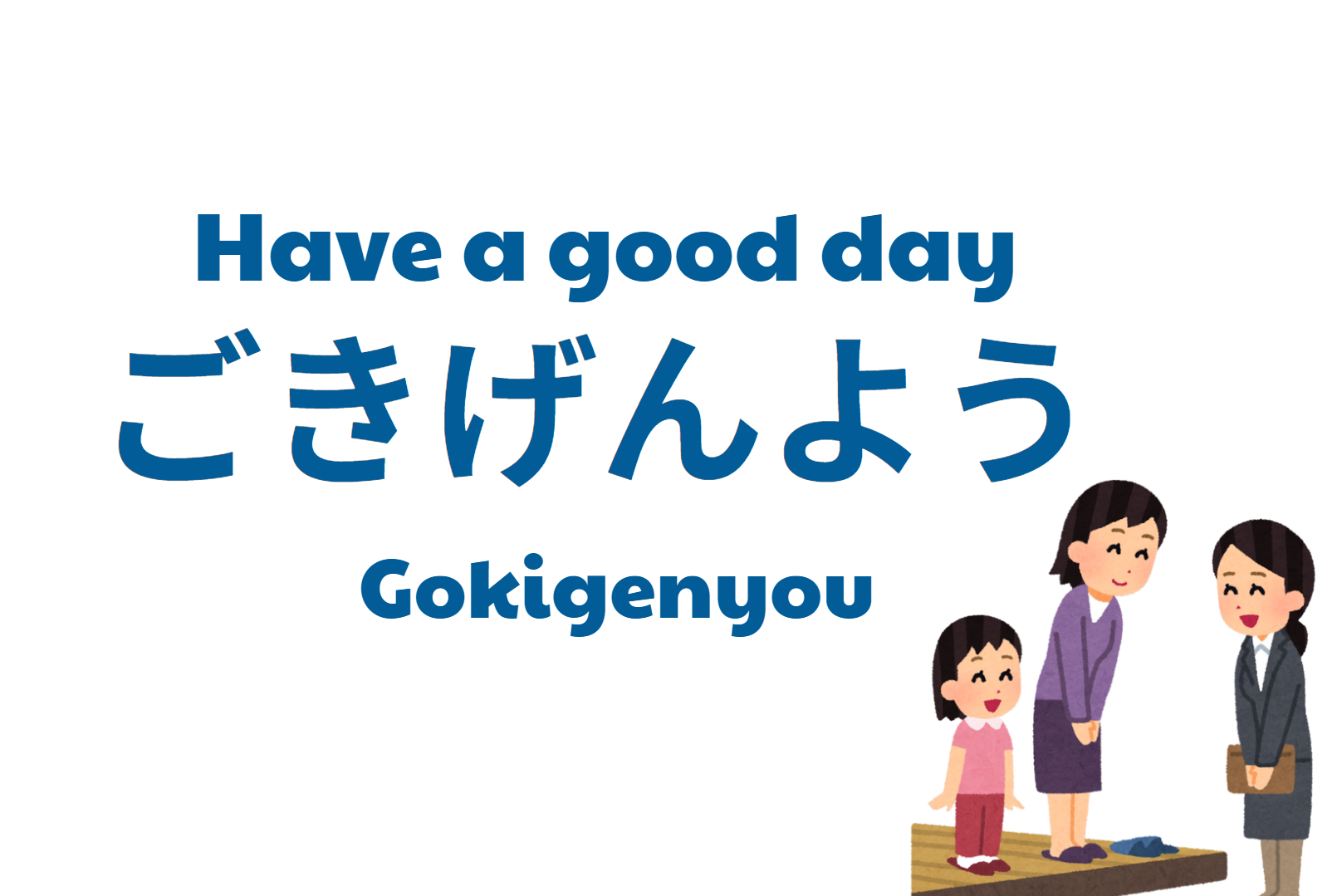
16. お大事に (Odaiji ni) – Take care / Get well soon
Usage: A polite phrase used to express concern for someone’s health, often directed at someone who is unwell or recovering.
Example:
風邪を引いている友達に「お大事に」と伝えました。
Kaze o hiiteiru tomodachi ni "Odaiji ni" to tsutaemashita.
(I told my friend who has a cold, "Take care.")
17. ありがとうございました (Arigatou gozaimashita) – Thank you very much
Usage: A formal and polite way to express gratitude, often used at the end of a service or interaction to thank someone sincerely.
Example:
お世話になった先生に「ありがとうございました」とお礼を言いました。
Osewa ni natta sensei ni "Arigatou gozaimashita" to orei o iimashita.
18. では失礼いたします (Dewa shitsurei itashimasu) – Excuse me, I’ll take my leave
Usage: A very polite way to excuse oneself, commonly used in formal business settings or when addressing superiors.
Example:
会議が終わったので、「では失礼いたします」と言って部屋を出ました。
Kaigi ga owatta node, "Dewa shitsurei itashimasu" to itte heya o demashita.
(After the meeting ended, I said "Dewa shitsurei itashimasu" and left the room.)
Context-specific farewells
|
Phrase |
Pronunciation |
Meaning |
|
また会いましょう |
Mata aimashou |
Let’s meet again |
|
ではまた |
Dewa mata |
See you then |
|
良い一日を |
Yoi ichinichi o |
Have a good day |
|
良い夜を |
Yoi yoru o |
Have a good night |
|
また連絡します |
Mata renraku shimasu |
I’ll contact you again |
19. また会いましょう (Mata aimashou) – Let’s meet again
Usage: Used when parting ways with the intention of meeting again in the future. Suitable for both casual and formal settings.
Example:
素敵な時間をありがとうございました。また会いましょう!
Suteki na jikan o arigatou gozaimashita. Mata aimashou!
(Thank you for the wonderful time. Let’s meet again!)
20. ではまた (Dewa mata) – See you then
Usage: A polite and neutral way to say “see you next time,” often used in professional or social settings.
Example:
今度の会議でまた話しましょう。ではまた。
Kondo no kaigi de mata hanashimashou. Dewa mata.
(Let’s talk again in the next meeting. See you then.)
21. 良い一日を (Yoi ichinichi o) – Have a good day
Usage: A polite and kind farewell to wish someone a good day, often used in service or formal interactions.
Example:
今日もお忙しいと思いますが、良い一日を!
Kyou mo o-isogashii to omoimasu ga, yoi ichinichi o!
(I’m sure you’re busy today, but have a good day!)
22. 良い夜を (Yoi yoru o) – Have a good night
Usage: Used to wish someone a pleasant evening or night, typically in polite or semi-formal settings.
Example:
デートを楽しんでください。良い夜を!
Deeto o tanoshinde kudasai. Yoi yoru o!
(Enjoy your date. Have a good night!)
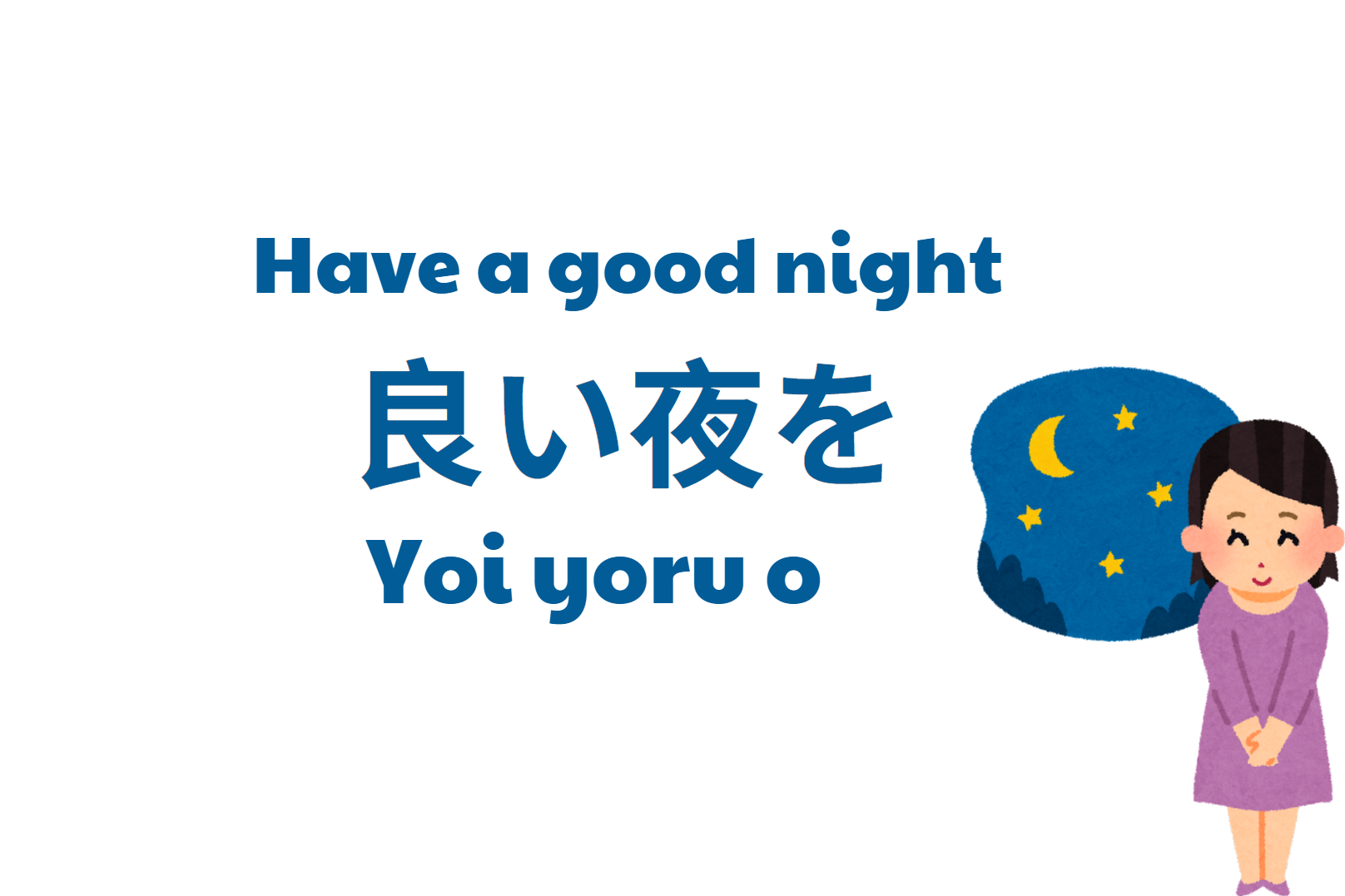
23. また連絡します (Mata renraku shimasu) – I’ll contact you again
Usage: A polite phrase used in professional or personal contexts to indicate you’ll follow up or stay in touch.
Example:
詳しい内容は後でお伝えしますので、また連絡します。
Kuwashii naiyou wa ato de otsutae shimasu node, mata renraku shimasu.
(I’ll share the details later, so I’ll contact you again.)
Modern and youthful farewells
|
Phrase |
Pronunciation |
Meaning |
|
またねーん |
Mata ne-n |
See you later (playful) |
|
じゃあバイ |
Jaa bai |
Bye bye |
|
ではね |
Dewa ne |
See you then |
24. またねーん (Mata ne-n) – See you later (playful)
Usage: A playful and casual variation of “mata ne,” often used among close friends, especially by younger people or in lighthearted contexts.
Example:
今日も楽しかった!またねーん!
Kyou mo tanoshikatta! Mata ne-n!
(Today was fun! See you later!)
25. じゃあバイ (Jaa bai) – Bye bye
Usage: A casual and modern way to say goodbye, blending the Japanese "jaa" with the English "bye." It is often used by younger people in informal settings.
Example:
もう遅いから帰るね。じゃあバイ!
Mou osoi kara kaeru ne. Jaa bai!
(It’s late, so I’m heading home. Bye bye!)
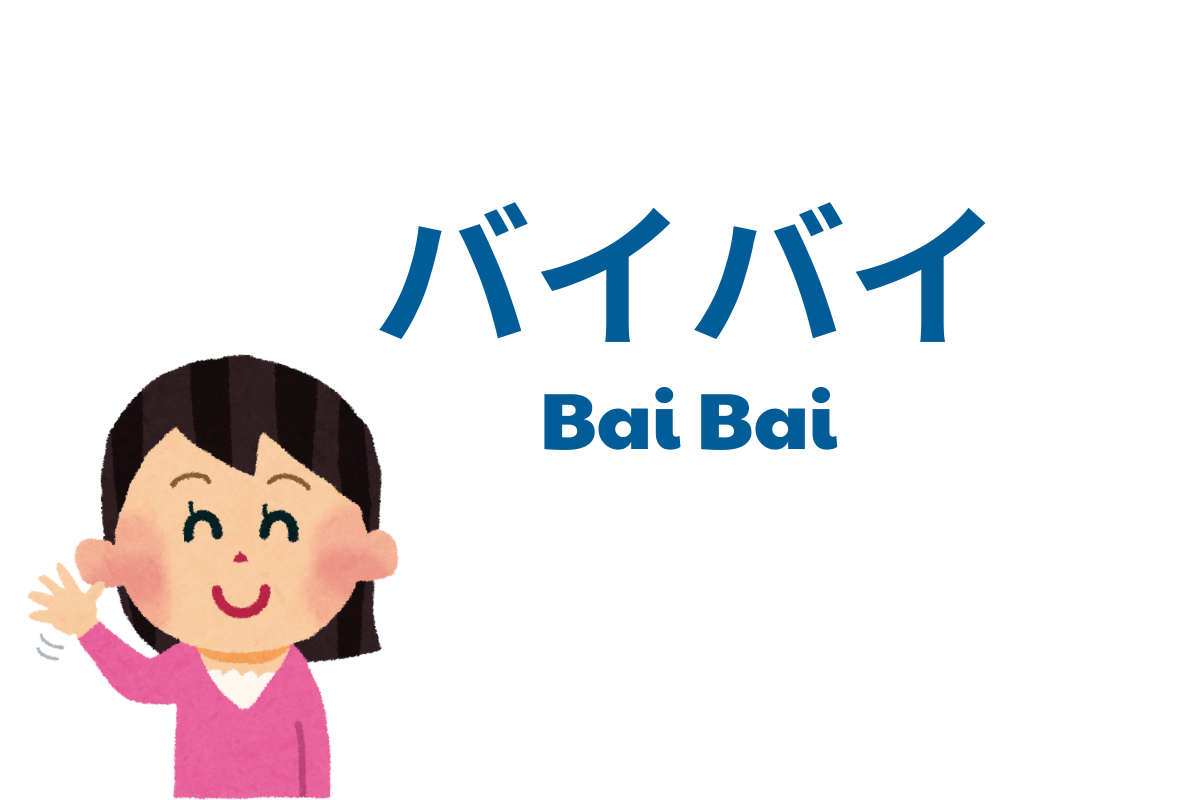
26. ではね (Dewa ne) – See you then
Usage: A softer and more informal version of "dewa mata," used to say goodbye in casual situations, often with friends or acquaintances.
Example:
また明日のランチで会いましょう!ではね!
Mata ashita no ranchi de aimashou! Dewa ne!
(Let’s meet again for lunch tomorrow! See you then!)
In addition to learning farewell phrases, you should also equip yourself with greeting phrases to communicate fluently in Japanese. You can refer to the article "Japanese greeting common phrases" for more details. phrases
Mastering how to say goodbye in Japanese not only improves your language skills but also deepens your understanding of Japanese culture and etiquette. Whether it’s a formal farewell or a casual goodbye, using the right phrase shows respect and connection. Start practicing these expressions and leave a lasting impression in every situation!

